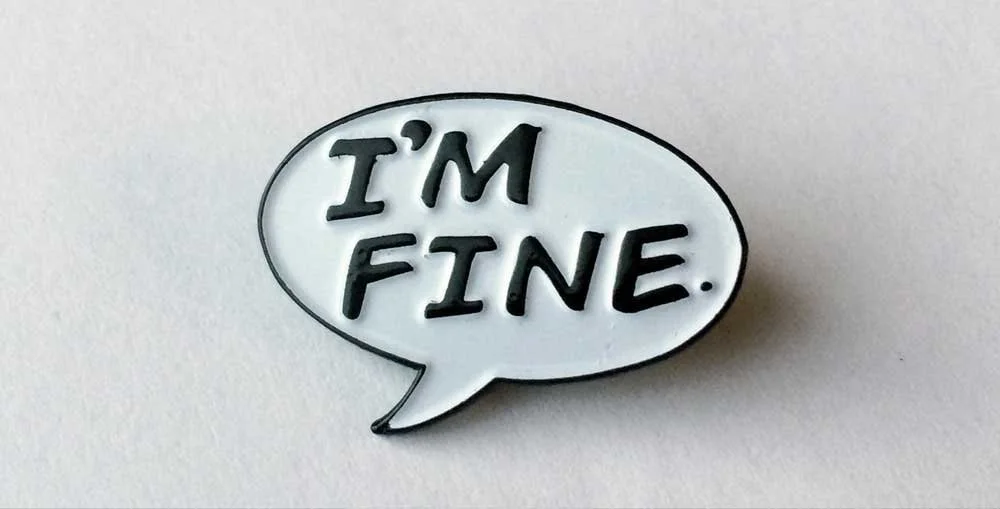Trauma Therapy in Philadelphia—Taking Off the Emotional Masks
You walk into a room, smile, and say you’re fine. You show up for work, keep your schedule moving, and laugh when you’re supposed to. On the outside, you look like you’re doing well. But inside, there’s another story.
Many trauma survivors learn to wear “masks” to get through the world. Maybe you play the role of the achiever, the caretaker, the person who’s “always okay.” These masks can help you survive, but they often come at a cost.
At Spilove Psychotherapy, we offer trauma therapy in Philadelphia to help you understand the masks you wear, why you needed them, and how to finally set them down.
Why Do We Wear Emotional Masks?
Masks aren’t weakness. They’re survival.
When you’ve lived through trauma, your nervous system learns what’s safe and what’s not. Maybe you learned to smile and stay polite when you were hurting. Maybe you became the “funny one” to keep attention off your pain, or the “high achiever” so no one would ask questions.
These strategies are brilliant adaptations in unsafe situations. They shield you from judgment, rejection, or harm. The challenge is that they often outlive the danger. Even when your environment is safe, your body still believes you need the mask.
We explore this pattern deeply in our blog on Healing Intergenerational Trauma, because many of these masks are passed down from one generation to the next. If your parents learned that vulnerability wasn’t safe, chances are you inherited some of those same roles without even realizing it..
The Cost of Staying Hidden
Wearing masks can make you feel safe, but over time it can also leave you feeling hollow.
Clients often tell us they “play a role” in their own lives, moving through each day without feeling fully seen. They might have thriving careers, families, and friendships, but they still feel an ache for something deeper.
The cost of masking is disconnection—not only from others, but from yourself. You may notice a split between the part of you who performs and the part of you who longs to rest. Trauma therapy helps you explore these parts with compassion so that you don’t have to live in constant performance mode.
How Trauma Therapy in Philadelphia Helps
Therapy is where you get to take off the mask.
In trauma therapy, you can talk about the roles you’ve played and why they mattered. We honor the fact that your coping strategies protected you — and we help you imagine a life where you don’t have to rely on them anymore.
Many clients also explore EMDR therapy, which helps the brain reprocess painful memories so they no longer fuel the need for constant self-protection. For those ready for deeper work, individual therapy intensives provide multi-hour sessions where you can go further, faster.
What It Looks Like to Take the Mask Off
This process isn’t instant. It often begins in small, almost invisible ways—small moments where you choose honesty over performance.
A client might pause when someone asks how they’re doing, resisting the urge to automatically say, “I’m fine.” Instead, they may offer a truer answer, even if it’s as simple as, “actually, today feels heavy.” That shift, while subtle, creates space for their real self to be witnessed.
Others notice it in their relationships. Instead of always being the one who plans, fixes, or cares for everyone else, they allow themselves to say, “I need support too.” This doesn’t mean abandoning responsibility—it means allowing more balance, so care is mutual rather than one-sided.
Taking off the mask can also feel like rediscovering your own preferences.
You might realize you don’t actually like the restaurant everyone assumes you love, or that you’ve been saying yes to social events when what you really need is rest.
These everyday choices become small acts of reclaiming yourself.
As this unfolds, life begins to feel different. You may catch yourself laughing in a way that feels freer, or resting without guilt. You may feel less like you’re constantly “on” and more like you’re living in alignment with what your body, heart, and nervous system need.
This is not about erasing the parts of you that learned to perform. Those parts deserve compassion—they kept you safe. But in therapy, you begin to trust that you can take the mask off, even briefly, and still be accepted. Slowly, you start to feel less like an actor in your own life and more like the person you really are: whole, worthy, and unbroken.
How Masks Affect Relationships
Masks don’t just hide your pain from you—they hide it from others too.
Partners, friends, and family members may see the mask and not the person underneath. This can lead to feeling unseen, even in close relationships. Couples might struggle because one person never shares how they really feel, or because they play the “strong one” at the expense of their own needs.
Therapy can help you bring your authentic self into your relationships. It also helps loved ones understand what you’ve been carrying all this time.
How to Start Trauma Therapy in Philadelphia
Taking off the mask can feel scary. You might wonder who you’ll be without it, or whether people will still accept you. Many clients share that before starting therapy, they worried they would lose control or that their lives would unravel if they stopped performing. That fear makes sense—after all, the mask has been your protector for years.
Beginning therapy doesn’t mean you rip the mask off all at once. At Spilove Psychotherapy, we move gently and at your pace. Some sessions might simply be about naming the mask you wear. Other times, the work is about tracing back where it came from—a childhood home where emotions weren’t safe, a relationship where being “too much” had consequences, a workplace culture that only valued constant achievement.
From there, therapy becomes a space where you can practice experimenting with authenticity. With the support of a therapist attuned to your nervous system, you learn what it feels like to share a little more honestly, set a boundary, or allow someone else to see your vulnerability. This happens step by step, in ways that feel safe and manageable for you.
At Spilove, we honor the masks that helped you survive. We don’t push you to let go before you’re ready. Instead, we help you build the internal resources to know that you can set the mask down and still be held, respected, and loved. Over time, you begin to trust that you don’t need to perform to belong.
Whether you begin with weekly trauma therapy, dive into EMDR to reprocess old memories, or choose an intensive to go deeper in a shorter time, the first step is the same—reaching out.
You don’t need to have the perfect words.
You don’t need to have it all figured out.
You simply need the willingness to let someone walk alongside you as you loosen the grip of the mask
FAQs About Trauma Therapy and Emotional Masks
What is an “emotional mask” in trauma therapy?
An emotional mask is a role you step into to hide pain, keep the peace, or avoid rejection. These masks can look like being “the strong one,” “the funny one,” or “the achiever” who never lets anything slip. In therapy, we don’t shame the mask—we honor it. It once kept you safe. But we also help you gently lay it down so that you can live as your full, authentic self without needing to perform.
Why do trauma survivors wear masks?
Masks form as survival strategies. When you’ve lived through situations where it wasn’t safe to be vulnerable, your nervous system adapts by protecting you with a role. The problem is that long after the danger is gone, the mask often stays. This can leave you feeling unseen or even unknown—both to others and to yourself.
Can trauma therapy help me feel more authentic?
Yes! Therapy gives you space to notice the parts of you that are tired of pretending and the parts that still feel afraid to be real. With time, support, and practices like parts work, you begin to trust that you can show up as yourself and still be cared for. Authenticity stops being a risk and starts becoming a relief.
Do I need EMDR or regular therapy for this?
Both can be powerful! EMDR therapy helps the brain reprocess painful memories that keep you stuck in protective roles. Talk therapy or individual therapy intensives give you space to integrate those changes and explore what it feels like to live without the mask. Many clients find a combination works best.
Can Ketamine-Assisted Psychotherapy (KAP) help with emotional masks?
For some clients, yes. Ketamine-Assisted Psychotherapy can create a temporary sense of spaciousness in the mind and nervous system. This often helps people access emotions and parts of themselves that have been hidden behind the mask. In a therapeutic setting, KAP can make it easier to soften self-protection and connect with deeper truths, all while feeling supported by a skilled guide.
How do I know if I’m ready to take the mask off?
Readiness doesn’t mean you feel fearless—it means you’re curious about what life might be like without performing all the time. If you feel exhausted from pretending, that’s often a sign you’re ready. In trauma therapy, we move at your pace, making sure you feel supported every step of the way.



